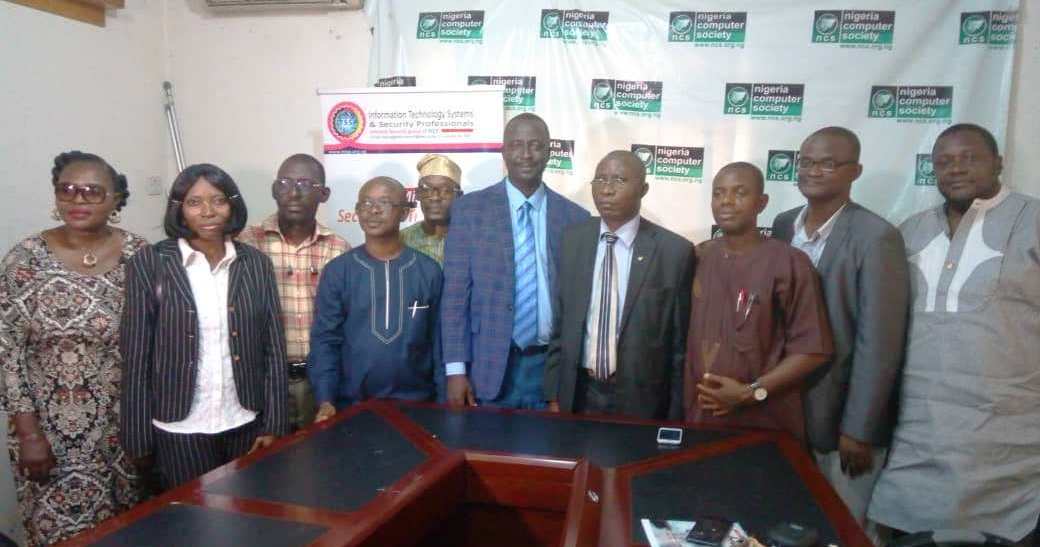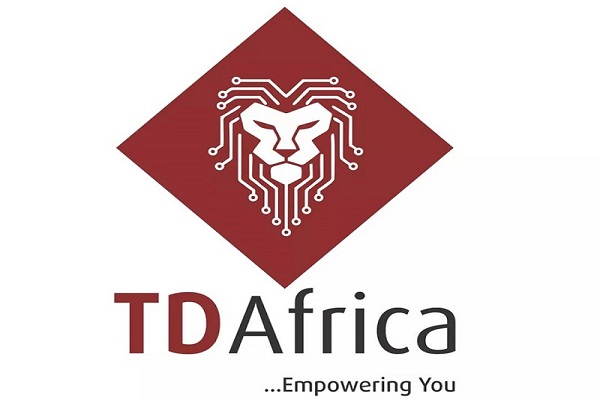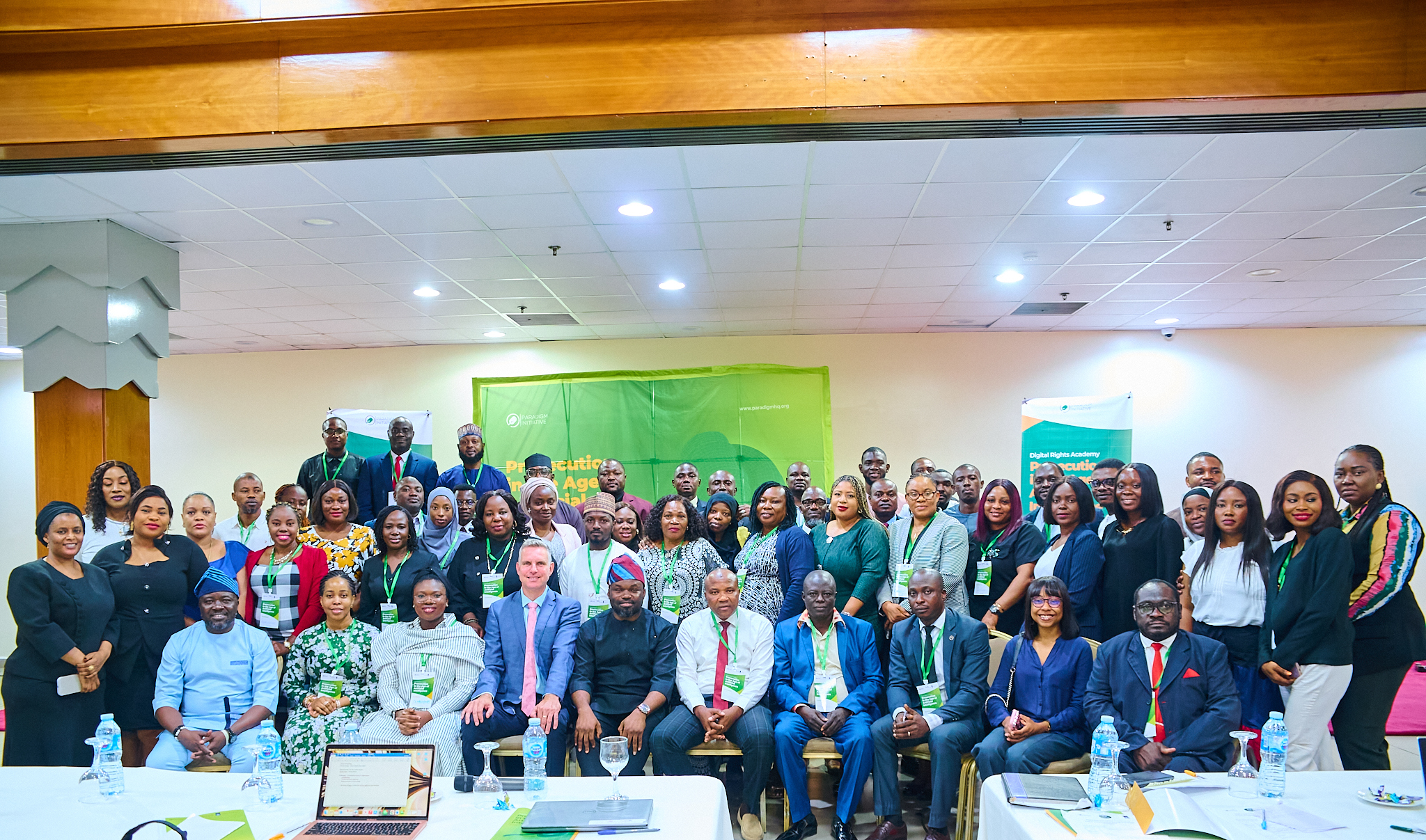Telecom
ITSSP Amplifies its Voice on Critical Cyber Security Issues Mitigating smooth ICT Development

The Information Technology Systems and Security Professionals (ITSSP) is set to address critical cyber security issues mitigating smooth development of information security in Nigeria.
Professor Adesina Sodiya, President, Information Technology Systems and Security Professionals (ITSSP) disclosed this on tuesday during a press conference meant to address critical cyber security issues mitigating smooth development of information security in Nigeria.
Sodiya, bemoans business owners for their unwilling to invest in basic security management and control systems, and assumes that the IT department will take care of any security issues that may arise.
He emphasized that it is important for the organisations to understand the nature of threats against their businesses and the impact of a breach on production, finances, intellectual property and reputation.
He said, “Organizations must continuously monitor their networks and have the ability to detect and mitigate intrusions as quickly as possible.
“Every organisation must develop information security policies, procedures and plans; and these need to be updated regularly and enforced to help keep pace with the constantly evolving threat landscape. Human beings are often the weakest link”.
According to Prof. Sodiya, an extremely high proportion of attacks involve social engineering approach.
“Many Nigerians, and even people all over the world, are still increasingly fallen victims of socially engineered attacks.
“In 2016, there are records that financial institutions in Nigeria faced Distributed Denial of Service Attacks (DDoS).
“This confirms that online activities are not completely secured.
“Security awareness and training are therefore indispensable.
“Attackers may be using customized attacks, but operating methods typically remain the same.
“Looking ahead at the future, security will probably be established by balancing controls and risks to produce scalable and flexible strategies.
“More persistent internal monitoring and sharing of security intelligence are necessary for a more effective security approach.
“For a security strategy to be workable for the present and the long terms, it is important to look ahead.
“Organizations tend to focus on reacting to security threats rather than being proactive.
“Functioning in this way provides no future growth in the adoption of the security framework.
“It is essential that organizations remain flexible and adaptable to achieve the long term security benefits.
“The organizations current security state, relative to the risk they are willing to take and effective security alignment will determine the achievable desired security posture for the future”.
Vice President of ITSSP, Liberty Echewodoh, highlighted the need to understand that information security in not only about firewalls, antivirus software and passwords.
“Information security is a continuous process that requires modern approaches and persistent management.
Collaborative strategy and efficient practices are required in protecting valuable assets of organisation to achieve major security goals of confidentiality, integrity and availability (CIA)”, he said.
Meanwhile, Professor Sodiya, added that in the light of the above, it will then require inter-professional expertise and collaboration from IT Security Experts, Investigation officers, Prosecuting officers, Lawyers, Judges and Courts with enough experience to adjudicate in any judicial resolution that involves e-driven activities.
“It is therefore an enormous task to focus on capacity building and sustainability in an environment that is embracing multi-facet e-services like ours without equal amount of energy geared towards developing necessary structures.
He listed the challenges as:
In financial sector, the enormity of fraudulent activities going on daily as being reported periodically by the Fraud Forum Unit of CBN is alarming.
The Central Bank of Nigeria, the Courts, and Federal Bureau of Statistics cannot provide sufficient data that can mitigate such activities adequately.
Some banks also experienced distributed denial of service (DDoS) attack in the last two years.
More and more individuals and organisations continue to experience different levels and types of cyber-attacks in Nigeria.
It has been forecasted that the next world war will be fought in the cyberspace. How prepared are we?
There is now cold cyber war all over the world.
“Do we have well experience information security experts in various organization?
|What is the level of cyber readiness in various organization?
“Where is IT Security Policy for National, State, Agencies, Higher Institutions of learning, as well as coordinating strategies; Media houses both Print and Electronics are not left out because they currently depend on e-platforms to function effective nowadays”.
In view of the above, ITSSP calls for full Implementation of the Cybercrime Act 2018; “Professional bodies should be included in the Council”, the President said.
“ITSSP calls for efficient and coordinated Computer Emergency Response (CERT).
“The Cyber Security Act that domicile in National Security Adviser’s office should create a civil arm of Cyber Security in executing its mandate like (Computer Emergency Response Team ‘CERT Nigeria’) with the professional agencies such as NITDA, CPN, Nigeria Computer Society (NCS), NBA where civilian population can easily relate, because the NSA is currently being viewed as arm forces affairs only.
“Strong Collaboration with relevant government agencies. In order to effectively curb the menace of cyber criminals in Nigeria, we seek strong collaboration with relevant stakeholders like CBN, NIRA, NCC, NPF, ICPC, EFCC, NITDA, NBA and banking institutions in Nigeria.
“Relevant government security agencies like Nigeria Police Force (NPF), Independent Corrupt Practices and Other Related Offences Commission (ICPC), Economic and Financial Crimes Commission (EFCC), and National Identity Management Commission (NIMC).
“There is need for adequate and accurate cybercrime data and statistics in the country.
“The system for realising this should be developed and maintained by ITSSP. ITSSP will develop an intelligent incident handling system.
“Support for capacity building in all areas of Information Security.
“NITDA and other stakeholders should support the development of high level skill in Information Technology.
“Of greatest importance is capacity building in this area, the Cyber Crime Art of 2015 in trying to address this established a fund for such development to be managed by its board.
“As it is now, this fund account is yet to be opened not to talk of collecting fund into it despite the fact that the Board had been in existence for over a year; just like NITDA also set up Information Security Department saddle with responsibility of Cyber Security.
“Civil arm of Cyber security coordination to complement what was done by NSA.
Mr. Rogba Adeoye, ITSSP National Secretary, In his contribution, said that all stakeholders must join and cooperate in fighting the cyber security warfare.
“We need to be proactive and not only reactive. We need to rapidly promote and develop information security in Nigeria”, he said.
Information Technology Systems and Security Professionals (ITSSP) is an information security group of the Nigeria Computer Society, with the major goal of promoting and developing Information Security in Nigeria.
Telecom
TD Africa Secures AI ISO Certifications

TD Africa, Sub-Saharan Africa’s leading technology distributor, has once again raised the bar for the continent’s digital transformation journey by attaining the ISO 42001 (Artificial Intelligence Management Systems) and ISO 27701 (Privacy Information Management Systems) certifications.

These globally recognized certifications, which set the highest benchmarks for responsible AI deployment and data privacy, position TD Africa as a pioneer in preparing Africa for an AI-powered future.
Speaking on the milestone, Mrs. Chioma Ekeh, CEO of TD Africa, stated: “These certifications are not just badges of compliance; they reflect our deep commitment to building Africa’s digital resilience with trust, governance, and accountability at the core. At TD Africa, we believe Africa must not remain a passive consumer of global innovation but must actively shape and co-create solutions that reflect our unique realities. From financial inclusion to agriculture, healthcare, and digital governance, AI presents limitless opportunities—our role is to ensure Africa is prepared to harness them responsibly.”
ISO 42001 provides the world’s first governance framework for the ethical and transparent deployment of artificial intelligence, ensuring solutions align with human values and global best practices. On the other hand, ISO 27701 guarantees that TD Africa manages personal data with unmatched integrity and security. This is an essential pillar in a time where data privacy is increasingly under threat.
For nearly three decades, TD Africa has anticipated and shaped the future of technology on the continent, not by chasing trends, but by building enduring structures. Beyond its certifications, the company has invested in world-class infrastructure, resilient distribution systems across 47 African countries, and a thriving technology ecosystem. Its TecHerdemy program has empowered over 400 women in technology, further cementing its position as a catalyst for inclusive digital growth.
With trusted partnerships with global technology leaders, TD Africa has consistently delivered on its promise to bridge global innovation with African realities. The attainment of these ISO certifications reinforces its ability to responsibly distribute and support advanced AI technologies across its vast network of resellers.
As the world prepares for the dawn of Artificial General Intelligence (AGI) with breakthroughs such as GPT-5, TD Africa is ensuring that Africa is not left behind. The certifications demonstrate the company’s readiness to give Africa not just access to innovation, but the muscle, discipline, and confidence to use it sustainably.
“This achievement is not just about TD Africa,” Mrs. Ekeh added. “It is a milestone for Africa. The global AI conversation cannot be left to Silicon Valley or Beijing alone. Lagos, Nairobi, Accra, Kigali, and Johannesburg must also have a strong voice. And TD Africa is proud to amplify that voice. We are no longer waiting for tomorrow to happen; we are preparing tomorrow, today.”
With this bold move, TD Africa has reaffirmed its legacy of leadership in technology distribution, while signaling a new era where Africa plays a decisive role in the global digital renaissance.
Telecom
Data Is Life: Why MTN Wants You to Get Smarter with Your Data

If there’s one thing we can all agree on, it’s this: life today runs on data. From morning Instagram scrolls to Zoom classes and late-night Netflix binges, we’re constantly plugged in, streaming, scrolling, and sharing. But if you’ve ever wondered, “Why does my data finish so fast?” or seen that dreaded low-balance pop-up just when you need it most, you’re not alone.

At MTN’s Customer Engagement Day 2025, Ugonwa Nwoye, MTN’s Chief Customer Relations and Experience Officer, addressed this reality in a way that felt both practical and deeply relatable. She spoke about how essential data has become, calling it the lifeblood of modern living. “If you don’t have data in today’s world, you feel cut off. Isolated. That’s how important connectivity is,” she said, capturing how many of us feel when we’re disconnected even for a moment.
Her words struck a chord, especially as she shared candidly about her own experiences. She reminded everyone that many apps continue to run in the background, consuming data without our knowledge, and how video-heavy habits, such as endless TikTok reels or video calls, can quickly drain data bundles.
But the heart of Ugonwa’s message wasn’t just about the challenges; it was about empowerment. She emphasised that MTN’s goal is not simply to sell data but to help customers use it better. She explained how MTN is equipping people with the tools they already have on their phones to track usage, teaching simple ways to control consumption and sharing practical tips for managing apps more effectively. “We’re not just telling you your data is finished,” she said. “We want you to know how it was used and how to make it last longer. It’s about giving you control.”
What stood out most was her willingness to listen. Throughout the session, she engaged directly with real complaints and questions from the audience, from why smaller bundles seem to finish faster, to teachers who spend entire days on Zoom, to concerns about coverage in certain areas. Ugonwa addressed each one, acknowledging frustrations and committing to follow up. “We hear you. From data issues to service gaps, we’re taking notes and acting. Your hustle is important to us, and our job is to enable it,” she reassured the room.
Her approach made it clear that MTN isn’t shying away from customer concerns but leaning into them. In a world where data has become as necessary as food and water, Ugonwa’s session felt like a much-needed reminder that while technology connects us, what really matters is how well it serves the people who rely on it every day. As she closed, the message was simple but powerful: MTN sees you, it hears you, and it is working to make sure your digital life is not just connected but smarter and more empowering.
Telecom
Paradigm Initiative Equips Prosecutors for the Digital Age of Crime

Paradigm Initiative is organising a capacity-building workshop to empower government prosecutors to prosecute cases committed through or facilitated by digital technologies, specifically examining new Artificial Intelligence (AI) trends in alignment with constitutional provisions and international human rights standards.

The two-day workshop in Abuja, Nigeria, is being held under the theme, “Prosecution in the Age of Artificial Intelligence.” It is organised by Paradigm Initiative with support of the Kingdom of the Netherlands under the Stemming the Tide of Abuse in Nigeria’s Digital Space (STANDS) Project. Drawing from new trends in the growing integration of artificial intelligence (AI) and digital systems into public administration and criminal investigations, it aims to find a balance through deep examination and understanding of how these technologies function, the new risks they pose, and the necessary safeguards to ensure that citizens’ fundamental rights remain protected.
This workshop comes at a crucial time, as criminal procedure laws have yet to fully catch up with the realities of the digital age and the evolving ways in which offences are committed. Increasingly, digital platforms are weaponised against victims, violating their privacy and exposing them to harm. With emerging technologies, these threats are becoming more sophisticated, placing mounting pressure on prosecutors to deliver results.
Speaking at the workshop’s opening, Khadijah El-Usman, Paradigm Initiative’s Senior Programmes Officer for Anglophone West Africa and lead on the workshop, highlighted that failure to build this capacity now risks widening the gap between the speed of technological change and the legal system’s ability to respond. This could lead to ill-equipped prosecutors, unintended violations of rights during investigations, and a further loss of public trust in the justice system.
She added, “By investing in targeted training, we can ensure prosecutors are not only keeping pace with emerging threats but are also positioned to advocate for evolving laws in the space.”
In his remarks, the deputy ambassador of the Kingdom of the Netherlands Embassy to Nigeria, Robert Sonnemans, praised the way in which Nigeria is embracing the digital age and the opportunities that come with it. “Artificial intelligence is a clear example of both promise and risk, holding immense potential to strengthen investigations and improve access to justice, but also pressing questions on how to ensure fairness and prevent bias or misuse.
The Deputy Director, Department of Public Prosecution of the Federation, Barrister Ali Baba Rijaiu, urged participants to embrace the training, in his words, “the work we do shapes the trust of citizens in the justice system. If we rise to the demand of this digital age, we will not only defeat crime, we will also safeguard freedom and show that justice in Nigeria is not left behind by technology but strengthened by it.”

 Telecom2 days ago
Telecom2 days agoNCC Claims to Have Eliminated Unregistered SIMs from Telecoms Networks

 Telecom2 days ago
Telecom2 days agoMTN Group Restructures Executive Team, Appoints Toriola VP for Francophone Africa

 Telecom2 days ago
Telecom2 days agoAliyu Aboki Applauds Broadband Mapping as About Expanding Opportunity in Africa

 E-Financial2 days ago
E-Financial2 days agoUBA Secures N5Bn BoI Fund to Boost Women Entrepreneurs, Others

 News2 days ago
News2 days agoTelcos See Biggest Growth Post-COVID – ALTON

 General News2 days ago
General News2 days agoVirtual Reality in Healthcare: Nigeria’s Untapped Opportunity for Training, Patient Care, and Medical Innovation

 Telecom1 day ago
Telecom1 day agoFG Scraps 5 Percent Telecom Excise Duty Under New Tax Law

 News2 days ago
News2 days agoNITDA, Bauchi State Partner on Digital Literacy and Skills Framework


























